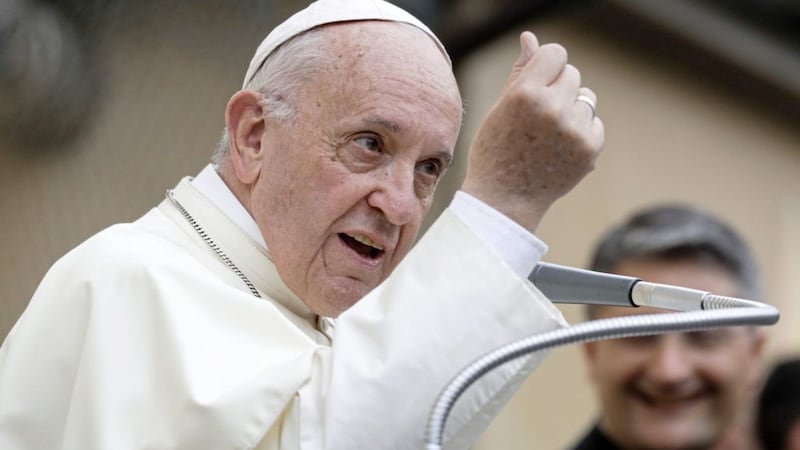In June 1932 thousands of people turned out to see the arrival of Cardinal Lorenzo Lauri the papal legate in Dun Laoghaire to preside at the Eucharistic Congress. Not only clergy but senior politicians waited on the quayside and to anyone observing archive footage today indulged in bowing and scraping and yes, genuflection.
The congress was an enormous occasion in Ireland, the first major international event the Free State organised with Catholics from all over the world attending. It’s reckoned a quarter of the population attended the Mass in Phoenix Park. 100,000 travelled from the north. Vast crowds jostled to see the Eucharistic procession with the Taoiseach Eamon De Valera and Seán T O’Kelly acting as canopy bearers for Cardinal Lauri who must have thought he’d died and wakened up in Rome about 1480.
Who now remembers the Eucharistic Congress of 2012?
In 1932 at the depths of the Depression vast sums were disbursed to accentuate the display of religiosity. As Professor Diarmaid Ferriter has written, ‘religion was deemed to be crucial in ensuring homogeneity and social solidarity and in diverting attention away from class differences.’ Writer George Russell (AE) said in those dark days Catholic religion was ‘the high culture of the average man and especially the poor.’ As you have discovered there were no women in Ireland until last Saturday.
The rigid backward authoritarian Catholic religion in Ireland sought to control every aspect of life especially political radicalism. The Catholic Truth Society, a title exhibiting no evidence of irony, poured out pamphlets on sex and politics stuffed with dire warnings about communism, Free Masonry, Protestantism, dirty books and films, not always in that order.
However the greatest triumph of the Catholic Church in Ireland after partition was to be able to dictate the social and moral content of the 1937 constitution. The Church was not formally consulted but the Constitution Committee De Valera established received ‘voluminous recommendations’ from a Catholic committee whose most influential member was Fr Edward Cahill SJ. Other suggestions poured in from Fr John Charles McQuaid at Blackrock College, later Archbishop of Dublin. Many of the submissions went directly to De Valera and he acknowledged them.
It has taken until last Saturday – 81 years - to eliminate the proposals from the Catholic clergy which have been most damaging and retarding to Irish life and society. A determination to make Ireland a Catholic country (as Savita Halappanavar was told on her death bed), to ensure a special place for the Catholic Church in the constitution, to ban divorce, contraception, though not explicitly, and of course abortion. The constitution was enshrined in law by a referendum with the highest turnout on record so each offensive element had to be removed by referendum.
Society changed over the last 35 years but politicians lacked the moral courage to step up and reject the piousity and hypocrisy that dominated Irish society. The Church helped by losing its moral authority through endemic child abuse, ill treatment of single mothers and bishops and clergy begetting children while preaching the opposite.
There’s still a long way to go in the north before a senior cleric can admit like Archbishop Diarmuid Martin, ‘the Church has a marginal role in society now’. Sectarian solidarity has prevented northern Catholics expressing the same level of contempt as their southern co-religionists but all the signs are there; empty churches, no vocations, people living their own lives oblivious of the Church, unable to name a priest.
However unlike in the south no leading Catholic politician or medical professional has the moral courage to step up and demand what they, and according to polls, the vast majority of people here believe, namely that the north should adopt radical reform of abortion law as soon as possible. Sinn Féin has taken the lead but they correctly present themselves as modern secular politicians not legislating for any religion. Practising gynaecologists and obstetricians need to speak up as they did in the south. Don’t leave it to Breedagh Hughes and courageous nurses.
The same is true on the other side. Many socially liberal Protestant professionals sit dumb and allow the DUP’s dominant Free Presbyterian view to control their lives, a view which represents in religious terms one per cent of the north’s Protestants.









